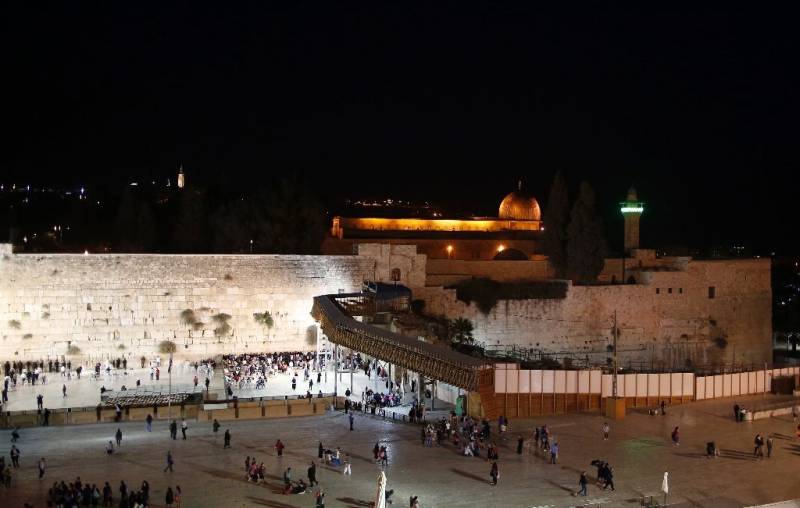JERUSALEM: Israel's top court has ordered the Western Wall's ultra-Orthodox administration to explain why women are banned from leading prayers at the holy site, as sought in a petition.
In accordance with strict ultra-Orthodox tradition, there are currently separate prayer sections for women and men at the Western Wall, one of Judaism's holiest sites.
Women are also barred from leading prayers or bringing in Torah scrolls, and activists have been campaigning for equal prayer rights.
The Israeli Supreme Court's decision on the side of the women who submitted the petition demanding equal rights was issued on Wednesday.
The petition came after a dramatic agreement was reached last year to create a third space near the wall open to both women and men at the adjacent archaeological site known as Robinson's Arch.
Women of the Wall, which for years has been pushing for equal prayer rights at the Western Wall, accepted the agreement.
But ultra-Orthodox political parties who form part of Israeli Prime Minister Benjamin Netanyahu's coalition, as well as the Western Wall administration, came out strongly against the deal and have delayed its implementation.
The petition was filed by a group calling itself the Original Women of the Wall, who also reject the Robinson's Arch arrangement and demand to be allowed to lead prayers for women at the Western Wall plaza and read the Torah there.
A separate court order allows women to pray with shawls and phylacteries to the chagrin of the ultra-Orthodox establishment, which considers those practises counter to traditional Judaism.
Wednesday's court decision ordered the state to explain "why the petitioners can't pray according to their custom in the traditional plaza or alternatively to enable them to pray according to their custom at a site with similar access to the traditional plaza," a reference to the Robinson's Arch.
The Supreme Court also prohibited the Western Wall administration from conducting "extensive" bodily searches on women, which it had been carrying out to locate Torah scrolls that women were smuggling in.
The court said it would unify the case at hand with the Women of the Wall's petition against the state's delay in implementing the Robinson's Arch arrangement.
The Western Wall, one of the last remnants of the Second Jewish Temple destroyed in 70 AD, is currently the holiest site where Jewish prayer is allowed.






